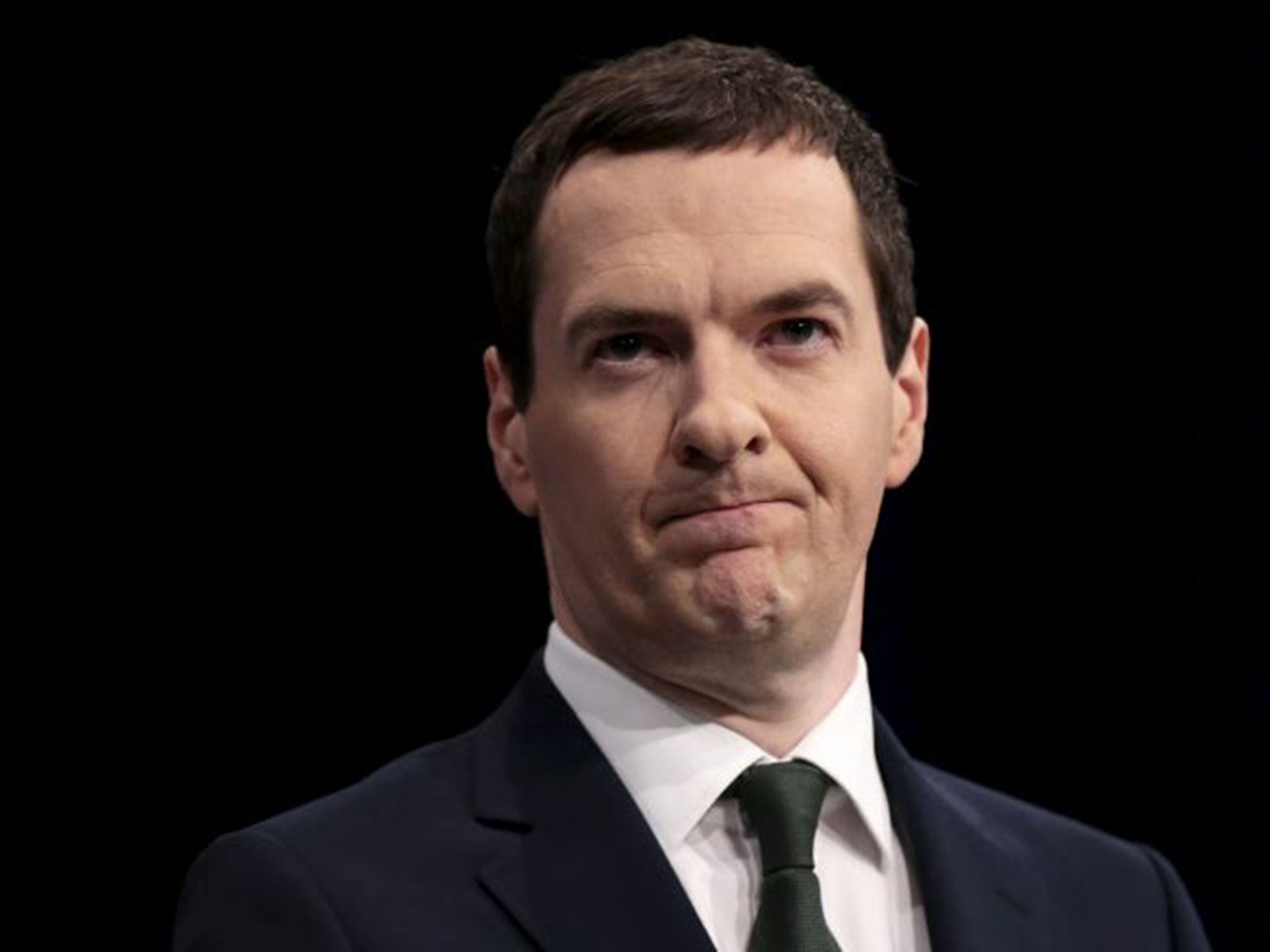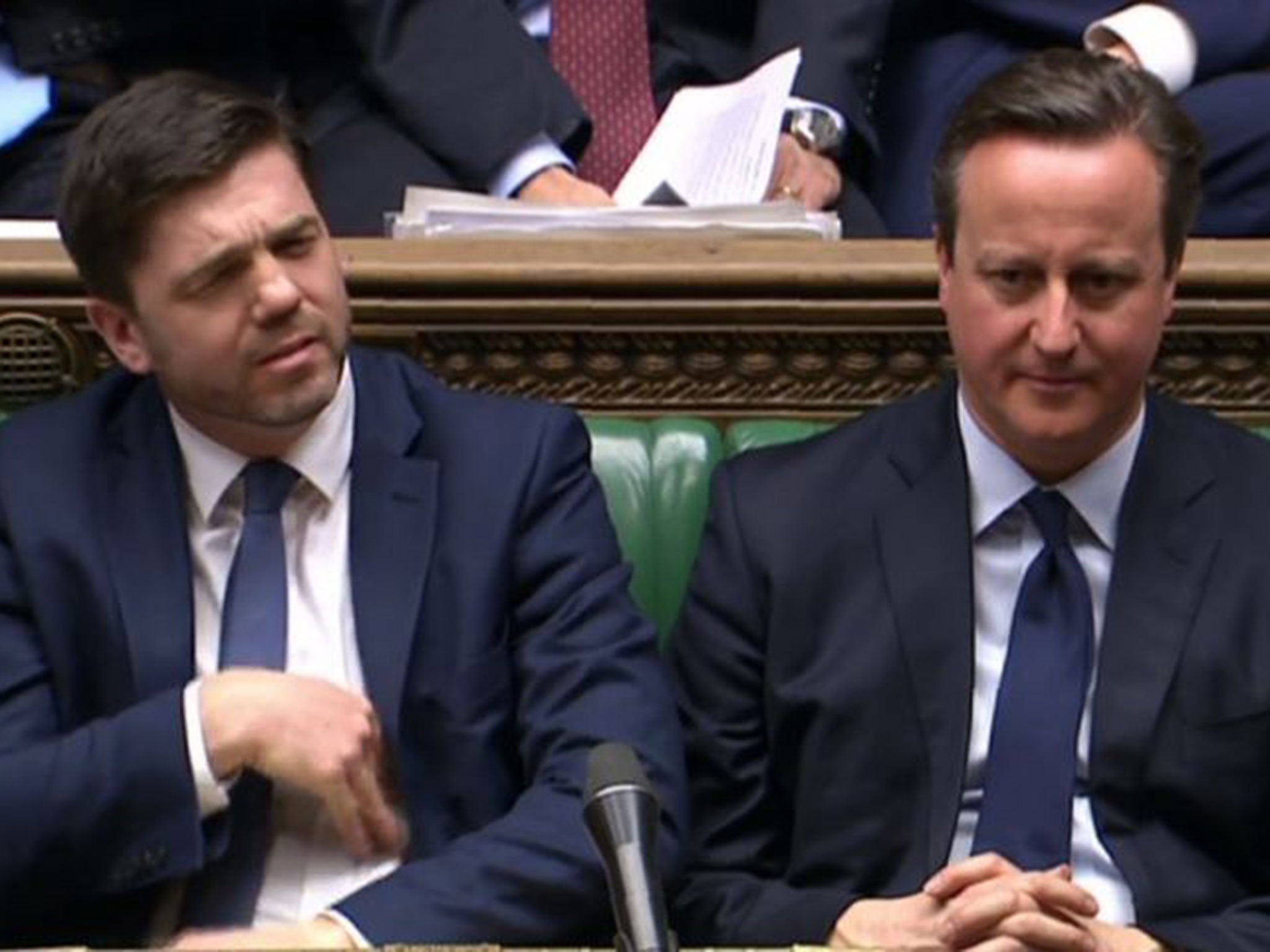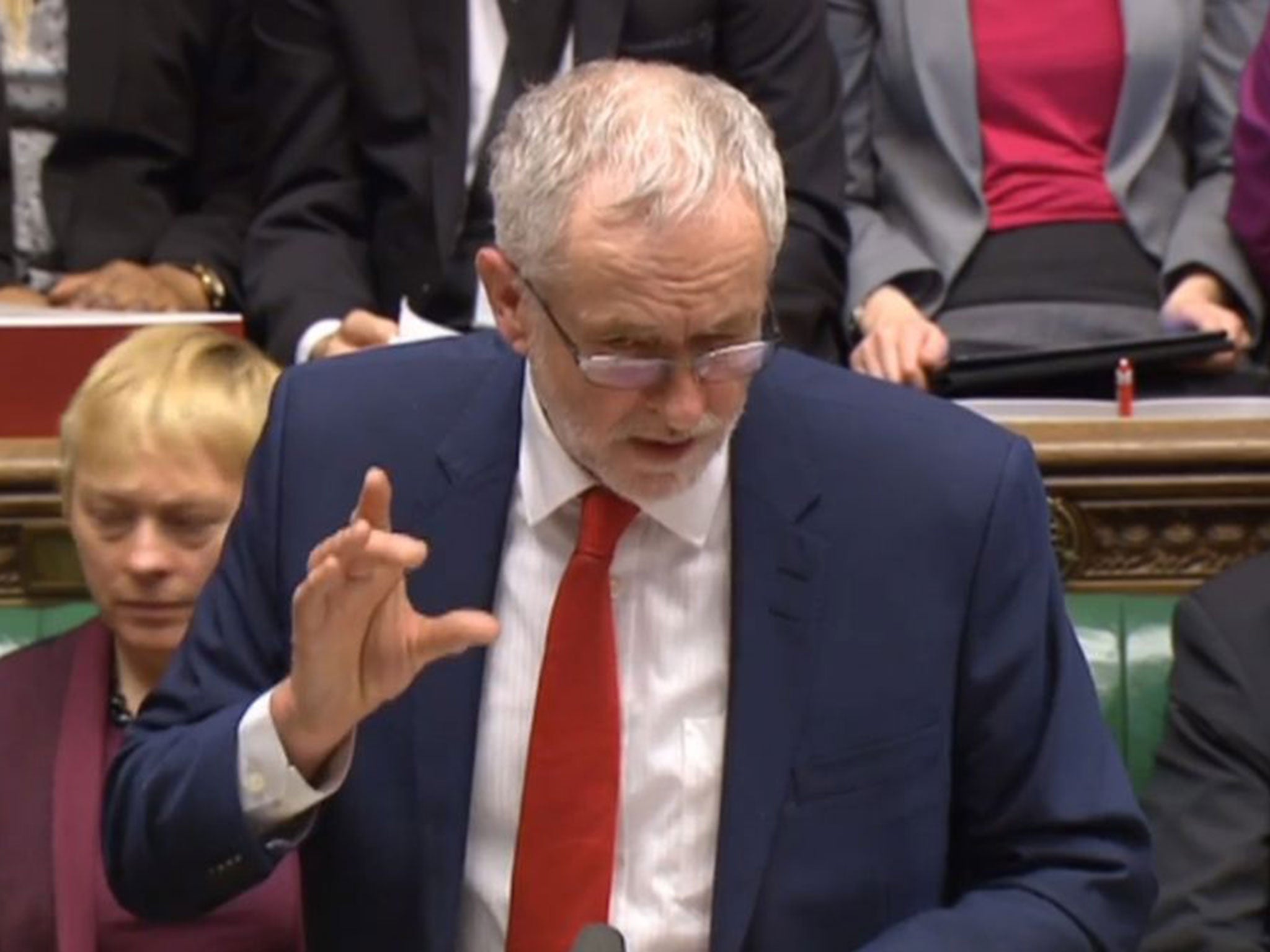'Missing' George Osborne on the retreat as Budget evaporates in wake of IDS resignation
Osborne ducks emergency debate as new Work and Pensions Secretary appears to rule out more welfare cuts

George Osborne is in full retreat after the Government promised no further welfare cuts and his shambolic Budget continued to unravel only five days after he delivered it.
The embattled Chancellor came in for further criticism as he declined to attend an emergency Commons statement on his “disappearing Budget”, leaving the Treasury Minister David Gauke to face the music. But Mr Osborne will be in the spotlight when he winds up a four-day Budget debate today.
David Cameron called a truce in the Tories’ civil war by praising rather than criticising Iain Duncan Smith, who accused him of pursuing policies that risk dividing society after quitting as Work and Pensions Secretary over planned cuts to disability payments. “I can guarantee that the work of a ‘Compassionate Conservative’ Government will continue,” the Prime Minister told the Commons.
But Mr Duncan Smith won a victory after his successor Stephen Crabb killed off the proposed £4.4bn of cuts to Personal Independence Payments (PIPs) and went further by saying: “We have no further plans to make welfare savings.” However, he said later it would be “absurd” to rule out any further changes before the 2020 election.
The mood of Tory MPs is so fractious that the Chancellor will not try to fill the £4.4bn “black hole” in his spending plans until he makes his Autumn Statement in November or December.
The pledge of no further welfare cuts could deliver a further blow for Mr Osborne. He is likely to continue to breach his own cap on welfare spending – a device he designed to embarrass Labour but which has now trapped him.

Unless the British economy does better than the gloomier forecasts set out in last week’s Budget, the Chancellor could face the humiliating prospect of missing his flagship target to clear the deficit and run a £10bn budget surplus before the 2020 election.
Ministers moved to head off a rebellion by Tory Eurosceptics in the Budget votes that could have resulted in a government defeat on the measure for the first time since 1994. They will not now oppose amendments to the Finance Bill to scrap VAT on women's sanitary products and to block an increase in the VAT rate on solar panels. Eurosceptics backed the amendments to highlight the EU’s role in setting indirect tax rates. Downing Street insisted there was no need to oppose the moves because Mr Cameron had won an agreement with fellow EU leaders to allow the UK to zero-rate sanitary products, while consultations on solar panels were continuing. Officials dismissed suggestions that the Budget votes could temporarily put Britain in breach of EU law.
Ed Miliband will argue today that the Tory turmoil strengthens the case for the public to vote to remain in the EU in the June referendum. In his first major re-entry into politics since losing last year’s election, the former Labour leader will argue that his party cannot “sit out” the referendum after Jeremy Corbyn was accused of giving only lukewarm support to the In campaign.
In a speech in London, Mr Miliband will say: “The last few days have shown the Conservative Party is divided, disunited and at each other’s throats. But that makes it all the more important that we set out our case on Europe. The civil war in the Conservative Party cannot and must not obscure the central question in this referendum: are we more likely to secure social justice and progressive change inside the EU or outside. The answer is resoundingly that we should vote to remain.”
Amid calls by Tory MPs for Mr Osborne to be moved out of the Treasury after the referendum, Mr Cameron insisted he would remain there. The Prime Minister claimed his "deeply held conviction" in One Nation government was evident in the higher minimum wage, childcare funding, tax cuts for the lowest paid, rebuilding "sink estates", the troubled families programme, prison reform and racial equality measures."None of this would be possible if it wasn't for the actions of this Government and the work of the Chancellor in turning our economy around," he said. Although Tory loyalists cheered that, there was a muted response from many backbenchers.
For the most part, Conservative backbenchers staged a show of unity in the Commons after appeals for calm following a weekend of bitter infighting. But Peter Lilley, the former Social Security Secretary, told Mr Cameron that “British people won’t take kindly to the idea that we must cut benefits for the vulnerable” by billions of pounds while handing similar sums to the EU.
Jeremy Corbyn surprised MPs by failing to mention Mr Duncan Smith in his response to Mr Cameron’s Commons statement.
John McDonnell, the shadow Chancellor, accused Mr Osborne of "cowardly hiding behind" a junior minister rather than explaining the “chaos” of his Budget. He added: “He now needs to set out how he will fill the black hole in his Budget. His failure to so do means his fantasy £10bn surplus target, like his credibility, is further shot to pieces.”
Tim Farron, the Liberal Democrat leader, said: "The only way this Budget farce is going to come to an end is if the Prime Minster finally puts the Chancellor out of his misery and asks him to stand aside.”
Torsten Bell, director of the Resolution Foundation think tank, said the pledge of no more welfare cuts would reduce the Chancellor’s flexibility to respond to any worsening in the public finances. “Tax rises, further departmental spending cuts, or rethinking the scale of any surplus, would have to take the strain instead. The first port of call should be reversing recent tax cuts that disproportionately benefit the richest households,” he said.

What Cameron said vs what he means
What David Cameron said
“My right honourable friend the member for Chingford and Woodford Green (Iain Duncan Smith) spent almost a decade campaigning for welfare reform and improving people’s life chances.”
What he meant
Mr Duncan Smith is hurt, angry, and going around attacking me and my government. I will try saying something nice and hope it calms him down.
What he said
“We have spent the last six years implementing those policies in government.”
What he meant
It is a bit rich for him to say that the Government is drifting in a wrong direction when he has been part of the government all these years.
What he said
“We must continue to cut the deficit, control the cost of welfare, and live within our means. We must not burden our children and grandchildren with debts we did not have the courage to pay off ourselves… We will continue with this approach in full because we are a modern, compassionate, One Nation Conservative Party.”
What he meant
While we are talking about “compassionate” let’s not forget that keeping a tight hold on government spending is “compassionate” too. If spending runs out of control, someone will have to pay eventually.
What he said
“I am sad that he has left the government but I can guarantee that the work of being a compassionate Conservative government will continue.”
What he meant
Goodbye Iain. Your resignation was pointless and we will just carry on without you.
Andy McSmith
Join our commenting forum
Join thought-provoking conversations, follow other Independent readers and see their replies
Comments